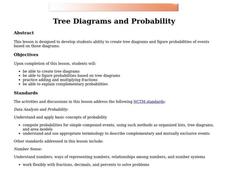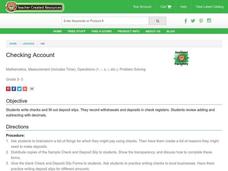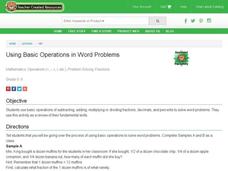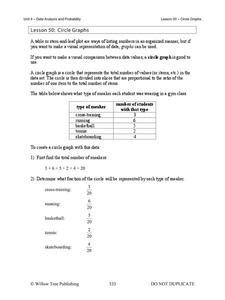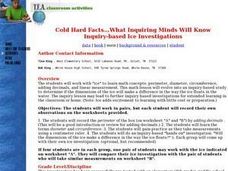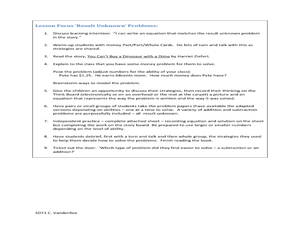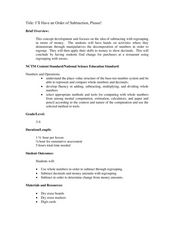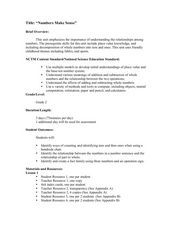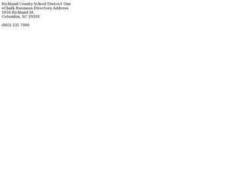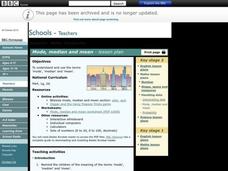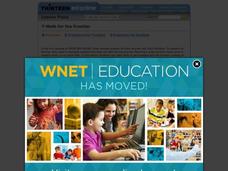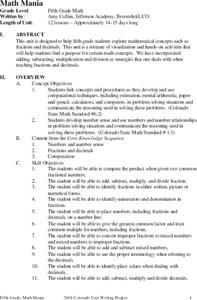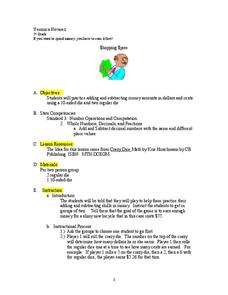Curated OER
Beanie Baby Bonanza
Third graders add and subtract decimals. In this third grade mathematics lesson, 3rd graders are given an imaginary $100 to purchase five Beanie Babies. Students determine which five they would like to purchase and estimate...
Curated OER
Native American Bartering
Fifth graders create items to barter. In this Native American bartering lesson, 5th graders read a book, design and make items, and barter with their peers. Students reflect on the experience through journal writing.
Shodor Education Foundation
Tree Diagrams and Probability
Aspiring statisticians create tree diagrams and figure probabilities of events based on those diagrams. They practice adding and multiplying fractions and explain complementary probabilities. Learners use computers activities to make...
Curated OER
Checking Account
Students keep track of finances in a check register. For this checking account lesson, students practice writing checks and deposit slips as they add and subtract decimal amounts in order to balance a checkbook in a register.
Curated OER
Using Basic Operations in Word Problems
Students review basic operations and use them to solve word problems. In this word problems lesson, students review basic mathematical operations such as addition, subtraction, multiplication, and division. Students then complete an...
Curated OER
Using Negative Numbers
Sixth graders practice using negative numbers by completing number equations. In this math problem solving lesson, 6th graders discuss the different ways negative numbers can be used in a math problem and practice completing...
Willow Tree
Circle Graphs
Pie isn't just for eating! Scholars learn to create pie charts and circle graphs to represent data. Given raw data, learners determine the percent of the whole for each category and then figure out the degree of the circle that percent...
Curated OER
Cold Hard Facts? What Inquiring Minds Will Know -- Inquiry-Based Ice Investigations
Students are introduced to the concepts of perimter, diameter, circumference and measurements. In groups, they complete two worksheets in which they determine if the ice dimensions make a difference in the way it floats. They discuss...
Curated OER
Operations with Decimal Numbers
Sixth graders demonstrate operations with decimal numbers. In this computation lesson, 6th graders play the game "Diabolical Decimals." The objects of this game is to construct the largest number after rolling a die five times. The...
Curated OER
Pigs Will Be Pigs
Students practice adding money after reading a story. For this economics lesson, students read the book Pigs Will be Pigs by Amy Axelrod, and examine how decimals, dollar signs, and adding money is used when making a purchase....
Curated OER
Book Title: You Can’t Buy a Dinosaur with a Dime
Students explore the concepts of multiple digit addition and subtraction. In this addition and subtraction lesson, students read the book You Can’t Buy a Dinosaur with a Dime and then discuss methods for solving a particular math...
Curated OER
Energy Choices
Students figure the best gas prices. In this math lesson, students add and multiply with decimals. Students complete a worksheet to find which supplier offers the best gas prices.
Curated OER
I'll Have an Order of Subtraction Please!
Students explore number values by completing consumer math worksheets. In this math functions lesson, students identify the use of a decimal in numbers and the place values that are represented when dealing with money. Students complete...
Curated OER
The Function Box
Learners explore arithmetic and numerical patterns. After observing a teacher created function box, students describe a pattern and predict what will "come out" of the function box. They explore patterns such as geometric shapes,...
Curated OER
Fractions
Fourth graders explore fractions. They use Skittles and M&M's to practice adding and subtracting fractions. Students review the numerator and the denominator of fractions. They count the number of each color of Skittles and M&M's...
Curated OER
Numbers Make Sense
Second graders explore number values by completing estimation problems in class. In this place value lesson, 2nd graders identify the use of decimals in numbers and how they relate to fractions or parts of a whole. Students utilize flash...
Curated OER
Go Figure! Using Percents in the Real World
Sixth graders solve sales tax problems. In this solving sales tax problems lesson, 6th graders find the sales tax on various items. Students are given a list of expenses that a family spent on vacation before taxes. ...
Curated OER
Mode, Median, and Mean
Students define mode, median and mean, and perform mathematical operations to determine these 3 terms. In this statistics/math lesson, students practice memory strategies to help distinguish between mode, median, and mean. Students apply...
Curated OER
Math for the Frontier
Make history come to life by using the Frontier House series to engage students in the past. Your class will "prepare" for a trip to 1833 Montana. They will learn about homesteading, frontier life, inflation, and cost of living. Using...
Curated OER
Fraction Food Frenzy
Students study addition of fractions with like denominators using illustrations and problem solving.
Curated OER
Math Mania
Fifth graders review adding, subtracting, multiplication and division of fractions and decimals through a variety of activities and exercises.
Curated OER
Shopping Spree
Sixth graders examine currency by completing monetary equations. In this economics lesson, 6th graders participate in a numbers experiment where they roll a die and earn money based on their roll. Students compete for their...
Curated OER
Let's Go Consumer Shopping
Second graders rotate through various centers designed to practice consumer math skills. They complete a task card at stations simulating consumer transactions that would take place at toy store, grocery store, restaurant or school store.
Curated OER
Time Management
Students plot activities for a 24 hour day. They record their information on a spread sheet program. Students list categories they use and write equations for cells that add cells of each category together. Students create a pie chart of...




